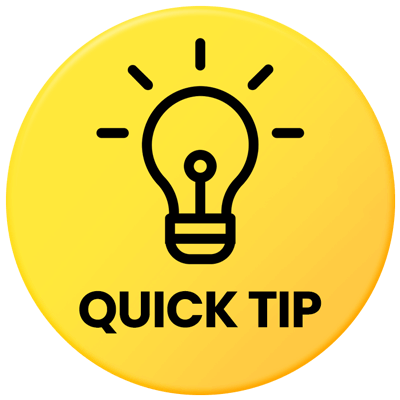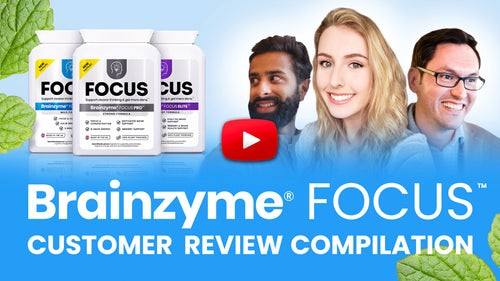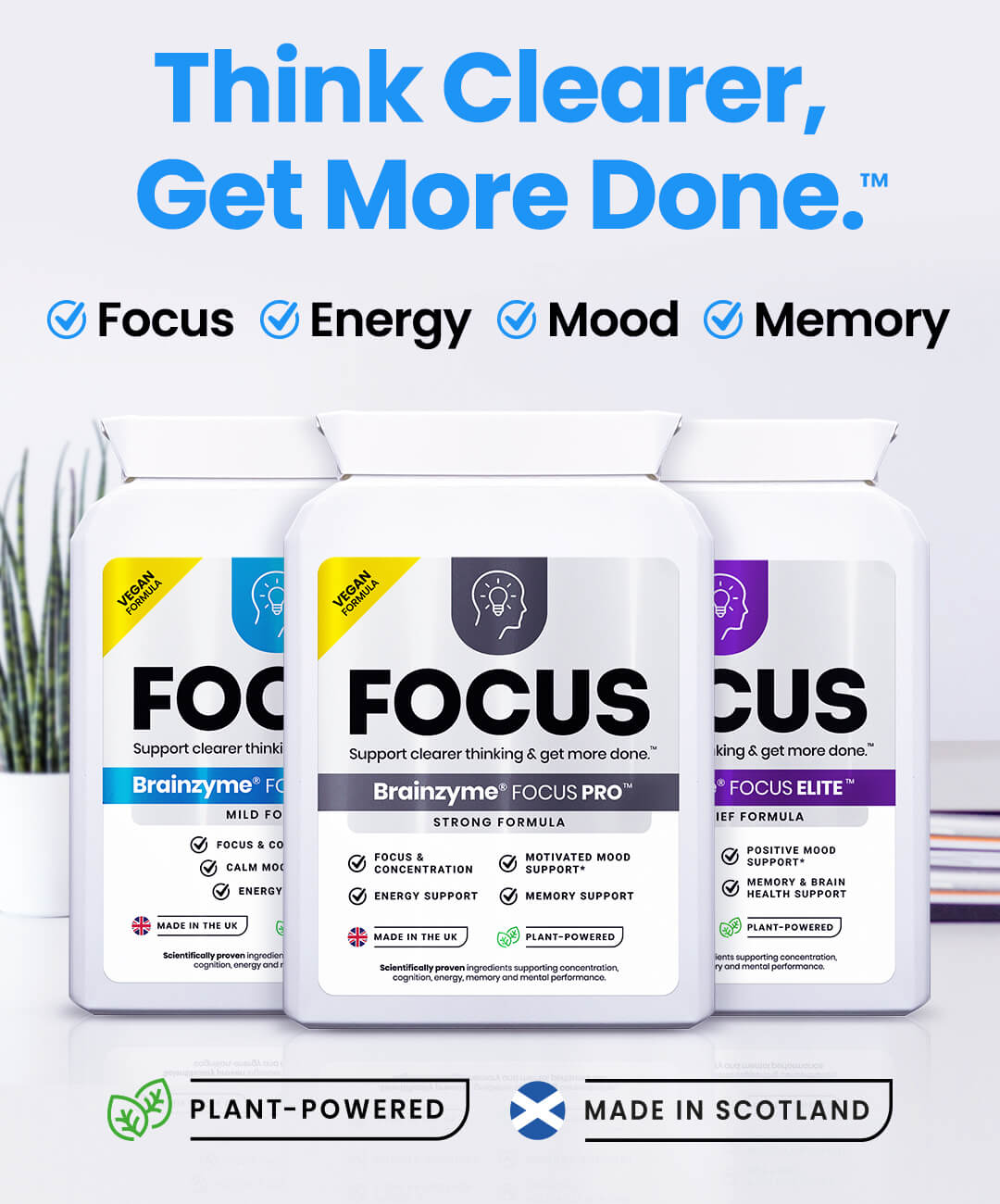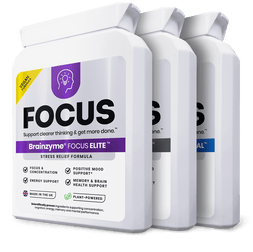Adult ADHD in the UK:
An Ultimate Guide
Ruth Kennedy - 12 April 2024
[Reading Time: 10 minutes]

Are you an adult in the UK struggling with the challenges of ADHD? You're not alone. Many adults in the UK live with ADHD and have found ways to manage their symptoms and lead fulfilling lives successfully. But if you're not sure if you have ADHD or how to get a diagnosis, it can be difficult to know where to turn for help.
In this blog post, we will explore the realities of adult ADHD in the UK, identifying the symptoms, navigating the diagnosis process, and discovering effective treatments. From the frustration of scattered focus to the anxiety of feeling misunderstood, we'll touch on the main pain points experienced by adults with ADHD.
We’ll also discuss the benefits of using supplements to manage issues like focus and attention and provide information on our recommendation for an affordable, plant-powered option made in the UK.
Contents
- What is ADHD?
- How Do I Know If I Have ADHD as an Adult?
- ADHD Symptoms in Adults
- Comparing ADHD Symptoms in Adults vs Children
- What are the 3 Types of ADHD?
- ADHD in Women
- How to Get Diagnosed for ADHD as an Adult in the UK?
- Living with Adult ADHD
- 7 Common ADHD Treatments
- How to Manage Focus and Attention Naturally
- Conclusion
- Frequently Asked Questions
What is ADHD?
What exactly is ADHD? ADHD, or Attention Deficit Hyperactivity Disorder, is a mental health condition that affects people of all ages, though it's frequently identified in children and adolescents. It's considered one of the most prevalent neurodevelopmental disorders and can persist into adulthood.
ADHD impacts various aspects of functioning, such as the ability to concentrate on tasks, control impulses, and regulate hyperactivity. Those with ADHD often struggle with managing emotions, multitasking, organising thoughts, and social interactions.

Symptoms typically manifest before the age of 12 and can differ from person to person, influenced by factors like age, gender, culture, and environment. Despite being more commonly diagnosed in children, many adults may still have undiagnosed ADHD due to its complex diagnostic process.
The causes of ADHD are still under investigation, with genetics, environmental factors, and developmental issues in the nervous system thought to play a role. While there's no cure for ADHD, there are several common treatments aimed at managing and alleviating its symptoms.
How Do I Know If I Have ADHD as an Adult?
How can I tell if I have ADHD as an adult? Figuring it out can be a bit tricky. If you're finding it hard to concentrate on tasks at home or work, struggling to stay organised and meet deadlines, or feeling overwhelmed in certain situations, it might be a clue that ADHD could be a factor.
Don't worry, you're not alone—adult ADHD is more common than you might think, with around 4% to 5% of adults meeting the diagnostic criteria.
To get started on finding support, reaching out to your GP is a good first step. They can provide a referral for further assessment and evaluation to help clarify things.
Keep in mind, many adults with ADHD also deal with other mental health conditions like depression or anxiety. That's why it's a good idea to chat with a mental health professional who can help tailor the right treatment plan for your specific needs.
Find out if you present key symptoms of ADHD by taking our self-ADHD test now.
ADHD Symptoms in Adults
While ADHD often begins in childhood, many adults struggle with its symptoms without realising it. Sadly, misdiagnosis or delayed diagnosis is common, particularly among women.
In adults, ADHD can show up in various ways. For instance, difficulties with organisation and time management are widespread. This might mean constant disarray, missed appointments, or struggling to use time efficiently.
Impulsive decision-making is another hallmark of adult ADHD. Acting without thinking through consequences is a common pitfall.

Additionally, attention struggles are prevalent, making it hard to stay focused or complete tasks without getting side-tracked.
Mood swings, low tolerance for frustration, and relationship challenges are also common. Procrastination and careless errors may plague daily life.
However, it's crucial to note that experiencing these symptoms occasionally doesn't automatically mean you have ADHD. Only a qualified healthcare professional can make an accurate diagnosis after a comprehensive evaluation.
Comparing ADHD Symptoms in Adults vs Children
ADHD symptoms can vary between adults and children, evolving as individuals grow. In children, hyperactivity and impulsivity are often prominent, seen in restlessness, fidgeting, and interrupting. Adults may display similar traits in different settings, like struggling to stay still during meetings or waiting their turn in conversations.
Moreover, adults with ADHD often face greater challenges in organisation and time management compared to children. This might mean living in disarray, missing appointments, or struggling to handle time efficiently.

Watch: How ADHD Looks Different In Adults
Executive function skills, crucial for planning and problem-solving, can be particularly tricky for adults with ADHD. These skills are essential for daily life and achieving long-term goals, presenting ongoing hurdles for adults with the disorder.
Diagnosing ADHD requires adults and adolescents over 17 to exhibit at least 5 symptoms from specific categories in multiple settings, such as home and work, while children need to show at least 6 symptoms.
Symptom Type:
Adults
Children
Hyperactivity and Impulsiveness
- restlessness and edginess
- problems keeping quiet, and speaking out of turn
- blurting out responses and often interrupting others
- mood swings, irritability and a quick temper
- inability to deal with stress
- extreme impatience
- taking risks in activities, often with little or no regard for personal safety or the safety of others – for example, driving dangerously
- being unable to sit still, especially in calm or quiet surroundings
- constantly fidgeting
- being unable to concentrate on tasks
- excessive physical movement
- excessive talking
- being unable to wait their turn
- acting without thinking
- interrupting conversations
- little or no sense of danger
Inattention
- carelessness and lack of attention to detail
- continually starting new tasks before finishing old ones
- poor organisational skills
- inability to focus or prioritise
- continually losing or misplacing things
- forgetfulness
- forgetful-ness
- having a short attention span and being easily distracted
- making careless mistakes – for example, in schoolwork
- appearing forgetful or losing things
- being unable to stick to tasks that are tedious or time-consuming
- appearing to be unable to listen to or carry out instructions
- constantly changing activity or task
- having issues organising tasks
What are the 3 Types of ADHD?
ADHD comes in three main types: primarily inattentive, primarily hyperactive and impulsive, and combined. Each type is defined by a specific set of symptoms.
Inattentive ADHD, formerly known as ADD, is marked by difficulty focusing, short attention spans, and struggles with organisation. It's more common in adults, especially women, often leading to overlooked diagnoses and years without proper support.
Hyperactive-Impulsive ADHD is characterised by impulsivity, hyperactivity, and a lack of self-control. People with this type may talk excessively, interrupt conversations, fidget, and have trouble sitting still.
Combined ADHD, as the name suggests, combines symptoms from both inattentive and hyperactive-impulsive types. To receive this diagnosis, an individual must display six or more symptoms from each category.
ADHD in Women
ADHD affects both men and women, yet it's often missed in women. Why? Well, symptoms in women can be different and less obvious than in men, leading to overlooked diagnoses.
For instance, women with ADHD might not display the typical hyperactivity seen in men. Instead, they may struggle with subtler issues like organisation, time management, and paying attention. Since hyperactivity is less evident, many women aren't diagnosed in childhood, increasing the need for assessments as adults.

Additionally, there's a misconception that ADHD is mainly a "male" disorder, leading to fewer evaluations for women. Symptoms may also be attributed to other factors like stress or menopause, further complicating recognition and diagnosis in women.

If you think you have ADHD and are waiting for an official diagnosis but are looking for relief now, we recommend trying the Brainzyme® FOCUS™ Starter Bundle to see if one of the three formulas might work for you.
How to Get Diagnosed for ADHD as an Adult in the UK?
Wondering if you have ADHD as an adult in the UK? Here's what you can do to get a proper diagnosis.
Start by chatting with your GP or a mental health professional, like a psychologist or psychiatrist. They'll discuss your symptoms and decide if a specialist referral is needed.
If referred, you might see a specialist in the NHS. They'll do a thorough evaluation, including a physical exam, reviewing your medical history, and various tests to check for ADHD.
Keeping a symptom diary can be handy too. It gives the healthcare pro a clearer picture of how ADHD affects your daily life.
The ADHD assessment typically lasts one to three hours, covering your experiences from childhood to adulthood. They'll match your experiences to a checklist of ADHD symptoms.
Remember to recall examples from your youth – it helps provide evidence of lifelong ADHD.
Struggling to get a formal diagnosis? Natural supplements might help manage symptoms. Check out our recommended choice for a natural focus and attention boost, or save time with our quick buy link.
Living with Adult ADHD
Living with adult ADHD presents real challenges, making it tough to comprehend and control.
This disorder doesn't just affect the individual; it impacts relationships, work, finances, and everyday tasks. Many don't even realise they have it, despite it being prevalent – up to 6 million in the UK may be affected, yet only a fraction receive treatment.
Around 3% of adults in the UK grapple with symptoms like focus issues, impulsivity, and restlessness. But with the right diagnosis and support, life can still be fulfilling.

However, adult ADHD often gets mixed up with other conditions like anxiety or depression, leading to misunderstanding or neglect.
Getting professional support is crucial for managing this complex condition. Whether from experts or a supportive network of family and friends, having help can make all the difference in navigating life with ADHD.
7 Common ADHD Treatments
Living with ADHD can be challenging, but various treatments are available to help manage its effects. Here's a rundown of some common approaches:
1. ADHD Medication
Prescription drugs like Methylphenidate and Dexamfetamine can help control symptoms. They're often used alongside therapy but don't cure ADHD.
2. An ADHD Support Group
Peer support groups provide a safe space for sharing experiences and coping strategies, offering emotional validation and solidarity.
3. Cognitive Behavioural Therapy (CBT)
This therapy helps individuals identify and change negative thoughts and behaviours, building self-awareness and better coping strategies.
4. Exercise for ADHD
Regular physical activity, like walks or martial arts, can help improve concentration and mood by increasing dopamine and endorphin levels.
5. Diet for ADHD
A balanced diet, especially one high in protein, can help manage symptoms, though further research is needed to confirm its effectiveness.
6. Supplements for ADHD
Natural supplements containing herbs, vitamins, and minerals like L-tyrosine and Zinc may help improve focus and cognitive performance.
7. Organisation Strategies and Routines
Establishing routines, using to-do lists, and decluttering can reduce distractions and improve focus by providing structure and predictability.
Remember, always consult with your healthcare professional before making any changes to your treatment plan.
What is the Best Natural Supplement for Focus and Attention Issues?
Struggling to stay focused? It could be a sign that your brain isn't getting the nutrients it needs. But don't worry, there are natural ways to support your brain health.
Alongside eating well and living healthily, consider a supplement with scientifically proven ingredients to give your brain a boost. Brainzyme® FOCUS™ offers plant-powered supplements that many have found effective in managing focus and attention issues.
Don't just take our word for it – hear from satisfied customers in our video testimonial:

Watch: Brainzyme® FOCUS™ Customer Compilation
With long waiting lists for ADHD assessments and high costs for private assessments, trying Brainzyme® FOCUS™'s formulas is a convenient and affordable way to address focus and attention issues sooner rather than later.

Learn more about all three of Brainzyme® FOCUS™'s powerful formulas. Choose from Brainzyme® FOCUS PRO™ for a potent focus and energy boost, Brainzyme® FOCUS ELITE™ for stress relief and mood support, or Brainzyme® FOCUS ORIGINAL™ for calm concentration.
Prefer to try them all? Our Brainzyme® FOCUS™ Starter Bundle lets you explore each option.
Conclusion
In conclusion, navigating adult ADHD can be challenging, but it's crucial to understand the symptoms and seek proper diagnosis and treatment. With a combination of medication, therapy, and lifestyle adjustments, individuals can effectively manage their ADHD symptoms and lead fulfilling lives.
Remember, support is available through healthcare professionals, support groups, and online resources. One of our best suggestions to manage your focus and attention issues is to try a plant-powered supplement such as one of the Brainzyme® FOCUS™ formulas.
If you have focus and attention issues, see which of the Brainzyme® FOCUS™ formulas suits you best by purchasing the Brainzyme® FOCUS™ Starter Bundle today.

You can get 10% off your very first purchase of the Brainzyme® FOCUS™Starter Bundle! Use the code WELCOME10 when checking out.
Frequently Asked Questions
What is the Best Way to Get an Adult ADHD Assessment From the NHS?
To start the process of getting an adult ADHD assessment through the NHS, reach out to your general practitioner (GP). They'll evaluate your symptoms and may refer you to a specialist, like a psychiatrist or clinical psychologist, for a more thorough assessment.
The process for assessment can vary across the UK, so your GP can provide information about local options. It's essential to be aware of the NHS Right to Choose policy, which allows patients in England to express preferences for treatment facilities.
Due to high demand, NHS ADHD assessment services are facing significant backlogs, leading to long wait times. Private healthcare offers an alternative for those seeking faster assessments, though it can be costly and may not be covered by insurance.
How Does Adult ADHD Affect Mental Health?
Adult ADHD is associated with various mental health challenges, including depression, anxiety, and substance abuse. It often coexists with other conditions like autism spectrum disorder or tic disorders.
Individuals with adult ADHD may struggle with focus, organisation, decision-making, and productivity, leading to frustration and low self-esteem. They may also experience increased stress levels and difficulty managing work or relationships.
What ADHD Services are Available in the UK?
As ADHD diagnoses increase, so does the need for support services. The NHS provides specialist teams offering diagnosis, medication management, psychological interventions like CBT, and educational and family support.
Online resources like AADD-UK offer directories of local hospitals and peer support groups. Charities and organisations provide vocational training, employment assistance, counselling, and mindfulness-based activities to help manage ADHD symptoms.
For ongoing support, adults with ADHD can access online forums, NHS clinics, private therapists, and peer support groups. These groups offer emotional support, practical advice, and information on medications and management strategies.
Ruth Kennedy

Ruth Kennedy
Ruth Kennedy is a freelance life coach who, after being diagnosed with ADHD as an adult, strives to help others with ADHD manage their symptoms in the best way possible. Ruth takes Brainzyme® FOCUS PRO™ daily and swears by it to help her stay focused and productive. She uses her experience as an ADHD life coach to contribute to the Brainzyme® blogs.
An American Expat living in Edinburgh, Ruth loves exploring the beautiful city and surrounding countryside with her husband and two dogs.
Manage Focus, Attention and Hyperactivity Issues

Brainzyme® FOCUS™
Starter Bundle
Natural supplements that deliver fast results.
Brainzyme® FOCUS™ Starter Bundle
- Three Powerful Formulas
- Plant-Powered
- Scientifically Proven
- UK Made Supplement


References
McCarthy, S. (2012) Rdcu.be, The epidemiology of pharmacologically treated attention deficit hyperactivity disorder (ADHD) in children, adolescents and adults in UK primary care. Available at: https://rdcu.be/ciEc9 (Accessed: November 11, 2022).
(2021) NHS choices. NHS. Available at: https://www.nhs.uk/conditions/attention-deficit-hyperactivity-disorder-adhd/symptoms/ (Accessed: November 11, 2022).
Williams, P. and Editors, A.D.D. (2022) What are the 3 types of ADHD?, ADDitude. ADDitude. Available at: https://www.additudemag.com/3-types-of-adhd/ (Accessed: November 11, 2022).
*Customers have anecdotally expressed that Brainzyme® FOCUS™ products have helped with “ADHD-like symptoms"
*Mood claims are anecdotal.
Guaranteed SAFE Checkout
We use encrypted SSL security to ensure that your credit card information is 100% protected.
Click for more details
100% SATISFACTION GUARANTEE
Try Brainzyme® FOCUS™ supplements today with our Money-Back Guarantee. You can return the items within 365 days for a full refund.
Click for more details





